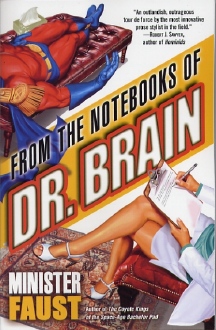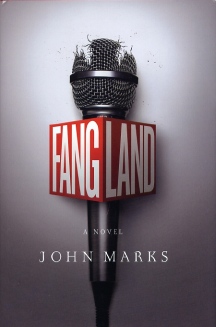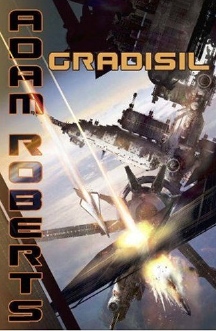Trashotron.com |
||
This Just In...News From The Agony Column
02-02-07: Michael Marshall's 'The Intruders' Reviewed by Ali Karim ; Preview for Podcast Monday, February 5, 2007
Nightmare Killers: Michael Marshall's 'The Intruders' Reviewed by Ali Karim
The Intruders by Michael Marshall
April 2007 - £12-99 HarperCollins UK
August 2007 $24-99 William Morrow USA
From the creator of The Straw Men trilogy comes this remarkable thriller which mixes crime-fiction with a dose of horror, and conspiracy theories resulting in a sense of dread that reaches a crescendo with a very perplexing and terrifying climax. What I love about Marshall’s work is his ‘off-kilter’ view of life and death, which in 'The Intruders' is at its most menacing.
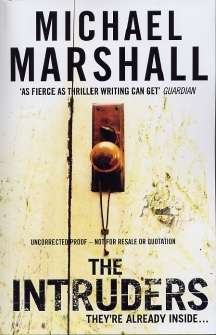
I guess lockiing the door is not going to help.
'The Intruders' starts with an apparently motiveless murder of a mother and teenage son, by a man who shows no emotion or humanity. This man we learn is called Shepard and seems controlled by others, not unlike the killers that populated 'The Straw Men', but with some major differences which are only revealed at the stunning climax.
Enter Jack Whalen an ex-LAPD cop turned writer who escaped the madness of Los Angeles for a small town called Birch Crossing on the northern Pacific Rim. His life with wife Amy, a high-flying corporate executive could not be better, until an old high-school friend called Gary Fisher calls him and wants to share a secret. Then things start to get really surreal. Amy goes missing in Seattle, leaving Whalen to suspect she’s having an affair, but when she returns, things have changed and so has Amy. Whalen’s world starts to crumble. Add to the mix a missing child called Madison [who exhibits psychopathic tendencies] and is drawn to the murderer called Shepard, more deaths; and a sinister legal firm who operate for multi-million dollar corporate clients out of [and get this] a rotting tenement building in the slum district of Seattle, and you have a tale from which dread just seeps off the page and onto your fingers as you turn the pages. Whalen turns to Fisher to help unravel himself from the nightmare he finds encircling him.
At its dark heart, 'The Intruders' is a horrific conspiracy thriller. It mixes Michael Marshall’s parallax-ed view of life, mingling the noir, with a sense of menace that just grabs you, filling your mind with sheer dread. There is an element of Horror and perhaps a little Science-Fiction hidden in the tale that makes you question what you consider is the relationship between your life, and your death – and what existence may actually mean.
I really cannot say any more lest I spoil the big surprise that sits at the end of this novel, like a demon clutching a handgun pointing directly into your face. But deep in the narrative is a feeling for humanity, and what loss can mean to those who have most to risk – their loved ones. I just loved this book - Ali Karim
A Chilling Terror
I'm posting another MP3 preview audio trailer for Monday's podcast today. I hope listeners enjoy this and will be tuned in for the upcoming podcast.
02-01-07: Minister Faust Reads 'From the Notebooks Of Dr. Brain'
Men of Steel, Women of Iron
Superhero comics and the science fiction genre have a weird relationship. In some sense, most superhero comics are science fiction, or at least they nod in the general direction of SF. Like, "OK, yeah, he's got superpowers because he's an alien," or, "He can do all this stuff because he got exposed to radiation." In science fiction, there might be some more sensible explanation to all this, or the readers would simply think the writer was either a)stupid or b)lazy. In many (not all, I know, not all) superhero comics, these things are simply Handed Down From On High, which is, I suppose, is why I never really "got" comics. In fact, the first comic I read was a Classics Illustrated of 'The War of the Worlds', so I went straight to science fiction, end of story.
Except that, in a real twist of fate, it wasn't the end of the story. The end of the story came when I read Larry Niven's justly famous, "Man of Steel, Woman of Kleenex", a short story wherein the writer takes the powers of Superman and treats them in a science-fictional manner, extrapolating all sorts of interesting problems should Supes and Lois decide to hook up. It's a great joke, and the perfect example of the tension between science fiction and superhero comics.
Minister Faust takes this joke to novel length with 'From the Notebooks of Dr. Brain' (Del Rey / Ballantine / Random House ; February 6, 2007 ; $13.95), and manages to pull it off by virtue of good writing and about ten bazillion in-jokes. Dr. Eva Brain-Silverman, AKA Dr. Brain is the therapist for the superheroes. Her clients, who include The Brotherfly, Omnipotent Man, The Flying Squirrel, Iron Lass, Power Grrrl and X-Man comprise the FOOJ: Fantastic Order of Justice. The problem is that justice has been meted out. The supervillains are either in the pokey or the madhouse. What do superheroes do when the supervillains are out of the picture? They obsess. They fret. And eventually, one of 'em dies, which send the rest of them into a tailspin of worrying, fretting, problematic exhibitions of superpowers at inappropriate moments and other entertaining behavior.
'From the Notebooks of Dr. Brain' pretends to be a self-help book for the normality challenged among us, those of us who simply must simply, like, fly, and between the plot points offers helpful suggestions for superhero self-actualization and fighting the supervillain within. This book is chock-a-block full of fun stuff, with enough referential heft as regards individuality, social injustice and personal responsibility to keep you high on life. Faust has a light touch, a heavy hand and keeps the pages turning effortlessly. That's a good thing, because at 390 pages, this is a thick slab of farce. It needs those superpowers to get around. But Faust brings his own superpowers to the table, notably the power entertaining prose. He slings jokes faster than a speeding bullet, and when he has targets, they're history. Science fiction and the superhero comics will always be a bit at odds. Science fiction wants to make you think. Superhero comics want to make you think you can fly. Minister Faust wants to make you think about your inner needs before you fly. I want you to think that buying a book with the word "Icondescension".
01-31-07: John Marks Visits 'Fangland'; Podcast of Dragons Get a Modern Image Makeover
Horror Takes Another Literary Victim
The horror genre loves literature and the literature loves the horror genre. The tropes offered by horror don’t require a lot of in-genre education to use effectively, unlike many of those from the science fiction genre. Two years ago, we saw Elizabeth Kostova score big with her debut novel, 'The Historian', which riffed on the ever-ready vampire trope to create an effective novel of literary history. Last year, Keith Donohue's smashing debut 'The Stolen Child' worked the legends of faerie to enable a character to look directly upon his life and the life of this nation. 'Fangland' by John Marks (Penguin Press / Penguin Putnam ; January 15, 2007; $25.95) finds the author of 'The Wall' and 'War Torn', a former producer for 60 Minutes, using the vampire trope to take aim at the message, the media, and everyone involved in either.
'Fangland' offers itself as a "document, in the spirit of the 9-11 Commission Report, on the terrorist attacks of September 11, 2001" from one James O'Malley, Senior Vice President for Business Affairs, Omni News & Entertainment Network. Evangeline Harker, an associate producer for a popular television news magazine show, The Hour, is sent to Transylvania, to investigate the doings of a crime boss. With a name like that she should have known better.
What follows for readers is a delicious stew, a post-millennial media satire using the tropes of the vampire novel to draw blood literally as well as figuratively. Marks fires off his tale with first person narration by Evangeline, but as the story progresses past that first passionate meeting with Ion Torgu ("'Horror is in the eye of the beholder'"), the emails start piling up, then the Therapy Journals. You got that right, Therapy Journals from a gal who is currently having large delivered to the offices from Romania. It's enough to make you laugh, if it doesn't first kill you. And heck, in theory, afterwards, you'll be stronger right?
Marks' novel offers fast reading and a plethora of quotable quotes, thought-provoking nuggets that will leap off the page and into the readers' brain, along with ample carnage natural and supernatural. He takes his subject seriously enough to get some seriously funny passages, and some nasty jabs at the world from whence he emerged amidst the nasty violence inflicted upon those in his narrative. Marks pulls off visionary surrealism as he toys with the media and the vampires and readers wonder which is worse.
Readers who are used to finding their horror novels tucked away in some literally god-forsaken book ghetto will have to be willing to toddle over to the stacks of books for regular people, who will likely regard the SM-58B-destroying cover and wonder what the heck it’s all about. One hopes that this will result in the wide readership a nicely done novel like this deserves, and that Marks will find the readers who will enjoy him most. This is a novel that a lot of readers might really enjoy, not just those who hunt the night. The literary and media satire is razor sharp, the trope is creatively amended, and the execution is entertainingly unique.
One of the dangers of novels that satirize the media is that the characters involved are often portrayed as too shallow, but Marks avoids this trap with lots of details and great prose. 'Fangland' may be satire, but it is not heavy-handed. Rather Marks, works with a light touch and a very sharp knife, the sort that wounds grievously without the victim being able to detect the attack until say, their entrails fall from the slit in their abdomen. As much as I may want to put a stake through the heart of the vampire novel, 'Fangland' instead puts a stake through the heart of such ambitions. We can't get rid of these damn vampires. They are just far too useful. They're not thinning the herd, but they do offer a seemingly immortal and endless chain of writers the chance to not just draw blood, but spill it. To fling it in the faces of those who would regard the old world, the old media as dead. Note. This is a NOVEL about TELEVISION. You're not going to be seeing a television show about a novel anytime soon. So who is laughing now?
Podcast of Dragons Get a Modern Image Makeover
Today's podcast is a clean, direct-from-my-editor mix of Dragons Get a Modern Image Makeover. This was lots of fun to put together, and I need to take a moment to thank all those who contributed; Anne and Todd McCaffrey, Naomi Novik, Christopher Paolini, and all their publishing support staff who helped me do this. And of course my editor! Thanks again all! Here's a direct link to the MP3 file.
01-30-07: Adam Roberts 'Gradisil' ; A Review of Alfonso Cuarón's Children of Men
Social Space Opera
Space opera is often sought out by science fiction readers as The Great Escape. Yes, you get some great hard science in space opera along with speculative leaps of the imagination. Hopefully you get cool aliens. I admit, I'm a sucker for space opera with neat monsters. Give me a monster and I'm a happy guy. The adventure, the wide-epic scope of planet hopping humanity, the view of our aspirations played out across a galaxy-wide backdrop, it all adds to the appeal.
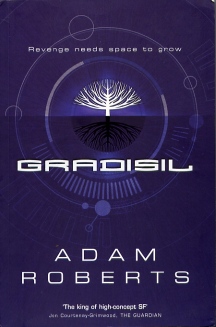
The UK true-first edition. Worth your valuable money and time.
What we usually don’t see in space opera are hardcore, here-and-now social issues. In fact, I'd dare to say that we read space opera to avoid these issues, since we need only look to any one of ten million news outlets to get them spewed continuously in our faces. But UK writer Adam Roberts has made a career out of doing the unobvious. His first novel, 'Salt', from 2002 was a very peculiar inversion of that subset of space opera known as the planetary romance. The planetary romance basically finds adventure on one planet rather than across multiple worlds. 'Salt' took place on one planet all right. It sent a group of religious conservative and a group of anarchists to settle on the same planet, but oops! That planet proves to be only barely hospitable. And when the humans arrive they don't have much to do beyond fight, and the issues we see play out are playing out right here and now, as warring factions within our own society struggle for dominance. 'Salt' is space opera turned into social science fiction, using the space opera element to boil down issues into fists versus fists.
Roberts is back at the social space opera with 'Gradisil' (Victor Gollancz / Orion ; March 16, 2006 ; £10.99 ; Pyr / Prometheus Books ; March 2007 ; $15). 'Gradisil' posits a near future where new technology has made escape into space a reality. This isn’t just space tourism. It's colonization, and all that is implied. Escape from government. Freedom from the concerns of the earth. A new life.
But not everyone is willing to let go, to permit the escape of others while they remain behind. And freedom proves to be state of mind as much as a state itself. Bottom lines anchor us all whether we'd like them to or not. About the time the US government realiziues what it's missing, it;'s going to be willing to do pretty much anything to get that missing bit back. 'Gradisil' provides Roberts with another near-future space opera scenario powered by a very political spin. 'Salt' took the war between religious fundamentalists and atheist anarchists into space so the detritus particular places and times could be stripped away and the conflict's core value revealed. 'Gradisil' takes the war between the grasping greed of the that nexus of US government and Big Business, the military industrial complex that Eisenhower warned us of, and well, everyone else isolates it in near-earth orbit. Roberts is a powerful writer, who can get to the emotional core of his characters to create the sort of burning righteousness that both sides feel. Why shouldn’t those who built the whole shebang get a piece of the pie? On the other hand, why shouldn’t colonists in a new world run the show themselves, for themselves? Now matter how it all falls out, there will be humans on one side, the other and some who find themselves torn between both. We will murder and betray one another. No matter where we are. No matter who we are. We just need the right circumstances. Space is good. There are lots of ways to kill people in space,.
'Gradisil' is Roberts' first novel to be published in the US. Victor Gollancz, the class-act British imprint brought us this writer years ago. Now, we're getting the chance to read Roberts' work from a US publisher, not surprisingly, Pyr. Whatever version of this novel you lay your hands on, be prepared to escape – to reality.
Anarchy in the UK
Writers of the genre will tell you that science fiction is never about the future. Children of Men goes this one better. Not only is it not about the future, it's not even particularly concerned with it's own premise. A spectacular combination of ineptitude and skill, Children of Men is nonetheless a gripping movie. But only as a movie. Any attempt to contemplate the inane premise, the tale told not by one but by five idiots, will result in a headache that might diminish your enjoyment of the spectacle on the screen. Don’t try. Just sit there and watch as director Alfonso Cuarón blows shit up so good that he manages to convey a coherent message in spite of the nonsense he's been saddled with.
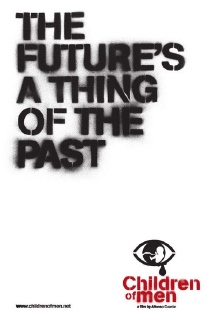
The UK poster, they got it.
Children of Men is based on a novel by P. D. James, who, when she writes mysteries, is one of our top authors. But I have to admit that I was never taken by the premise of the novel either, and thus did not read it. As the movie begins, it's 2027. No child has been born for twenty years. Theo Faron (Clive Owen) was apparently once some form of activist. He's contacted by his ex-wife (Julliane Moore) to help her smuggle the first woman to become pregnant in twenty years out of London to the safety of some nebulous enclave. He starts at A, and walks, drives, even takes a boat through much gunfire and many explosions to B. When the pregnant woman is revealed to others in this supposed future, they're not happy or joyous or even particularly protective. She becomes yet another diamond / super-weapon / incriminating set of papers that has to be ferried very carefully. But not too carefully.
The script never reveals the reason for the simultaneous infertility of mankind for twenty years. The decisions made by characters seem calculated to take them out of any realm of safety and into the kill zone again and again. The world is essentially unchanged over the next twenty years, which, if one examines reality, is not all that surprising. This is a future defined solely by everything being messy and everyone having lots of flatscreen monitors. As coherent, well-written science fiction, Children of Men is a spectacular failure.
But Children of Men is not, cannot really be about the things it pretends to be about. Future, schmuture. Cuarón, his crew and his actors have taken the inane surfaces offered by the script and created a vision not of the future, but of the present that is by virtue of exemplary sound, explosives, cinematography and editing, gripping and intense. The whole infertility thing? Fugeddaboutit! Children of Men shows us what we can expect maybe five years down the road should the entire Western world become as dangerous as downtown Baghdad. Everyone is armed, nobody gives a shit, and everyone is spoiling for a fight, hoping for a chance to use their caches of RPG's. It's the wild, wild west with modern lightweight infantry looted from Wal Mart.
Don’t go to see Children of Men expecting anything like the luxuriously created future we see in Ridley Scott's Blade Runner. The two movies have literally nothing in common. Cuarón has taken the horrifically incoherent mash he's been given and skated on top of it to bring us a vision of our world at this moment. It's brilliantly executed cinema based on drivel, but it is not science fiction. Instead, imagine Jarhead set in London. And hope, pray that this vision remains firmly in the realm of your imagination.
01-29-07: "Room to Dream"
A 2007 Interview With David Lynch
 |
| Please allow me to introduce myself, I'm a man of wealth and taste. David Lynch at KQED. |
David Lynch once made a film titled Wild at Heart, but a more apt description of the man himself is blissful at heart. But it's not exactly the happy-wappy you might presume comes from years of TM. Once you get beyond inner bliss and upper consciousness, well, there are stories to be told. Ideas to be worked out. Re-worked and all of it done in the real world where film takes can only last ten minutes unless you're using DV.
I talked to Lynch as he toured to support his new book, 'Catching the Big Fish: Meditation, Consciousness and Creativity' (Tarcher / Penguin ; December 28, 2006 ; $19.95) and his new movie Inland Empire. 'Catching the Big Fish' is a series of two to three-page nuggets of insight in Lynch's mind, his take on Transcendental Meditation, and his past and current artistic process. Easy to read, good for Lynch fans and more than a few useful pieces of advice for the creative artist.
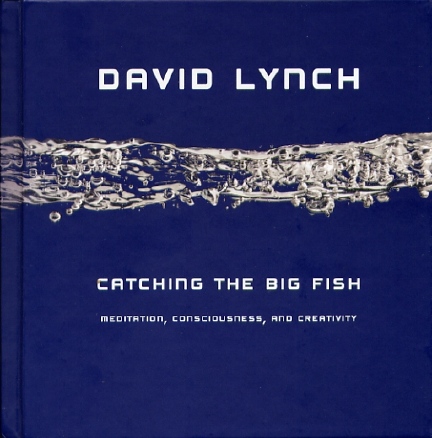 |
Dive
deep, win big prizes. |
I have to say that getting the interview done was not easy. When he arrived at KQED, they told me I could have fifteen minutes.
Okey-dokey.
I take all these things with a grain of salt and figure that the conversation will go as far as it will go. In this case, some forty minutes, and we had quite a good time. Now, you will hear a goodly little lecture on the virtues of TM to start things off, but we do get past that and talk about his love of the Sony PD150, digital editing, his take on his own website, and the story of the stick-figure version of Eraserhead.
If you're just coming here for the first time, you might want to peek at the Review Archive, where I've got over 600 (I think actually, may over 700 by now) book reviews. Or you can view them by genre; Science Fiction, Horror, General Fiction, Mystery, Fantasy, and Non-Fiction. And you can browse the interviews with such luminaries as Clive Barker, Chuck Palahniuk, Richard Ford, TC Boyle, Rudy Rucker, Cory Doctorow here. Or you might want to take a look at the Rolling Shelves where the latest of a very odd assortment of books includes the new Chuck Palahniuk novel, 'Rant'.
Which is where you'll find a link to the MP3 of the David Lynch interview, or a RealAudio version. You might want to subscribe to the podcast, to ensure that you don’t miss any upcoming interviews and I have some great folks in the queue. Rather than speak any more of this week's entry, I think I'll leave you with this big ol' photo and what Lynch himself calls: room to dream.
